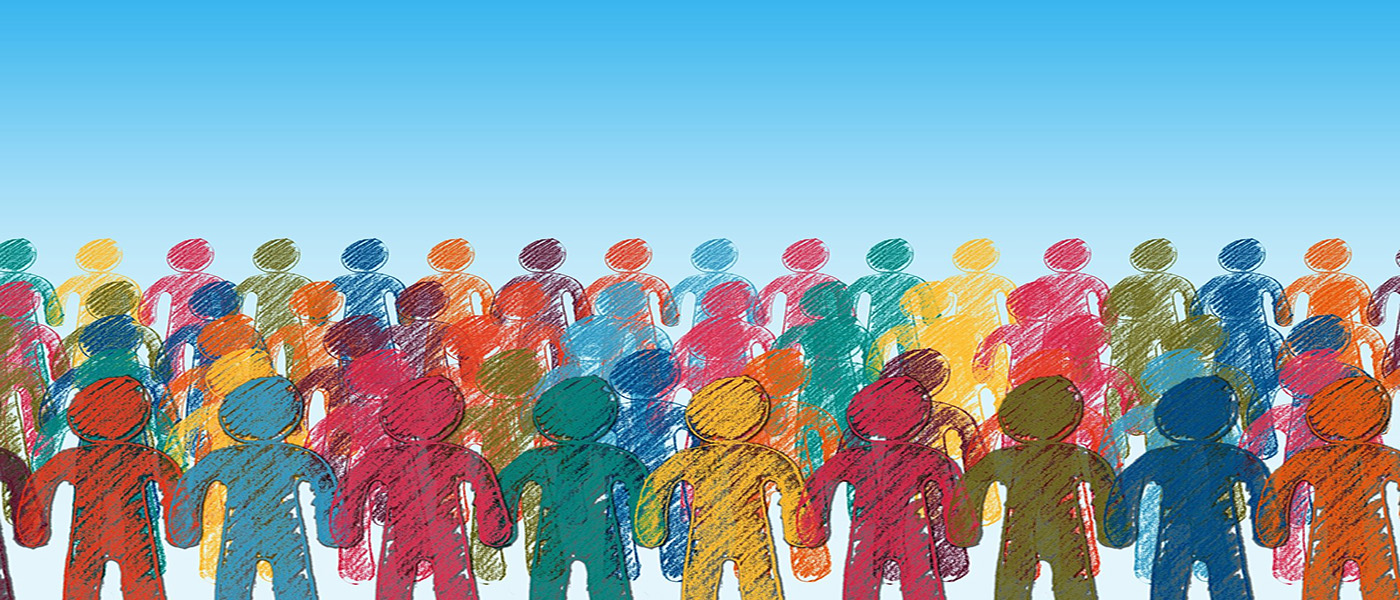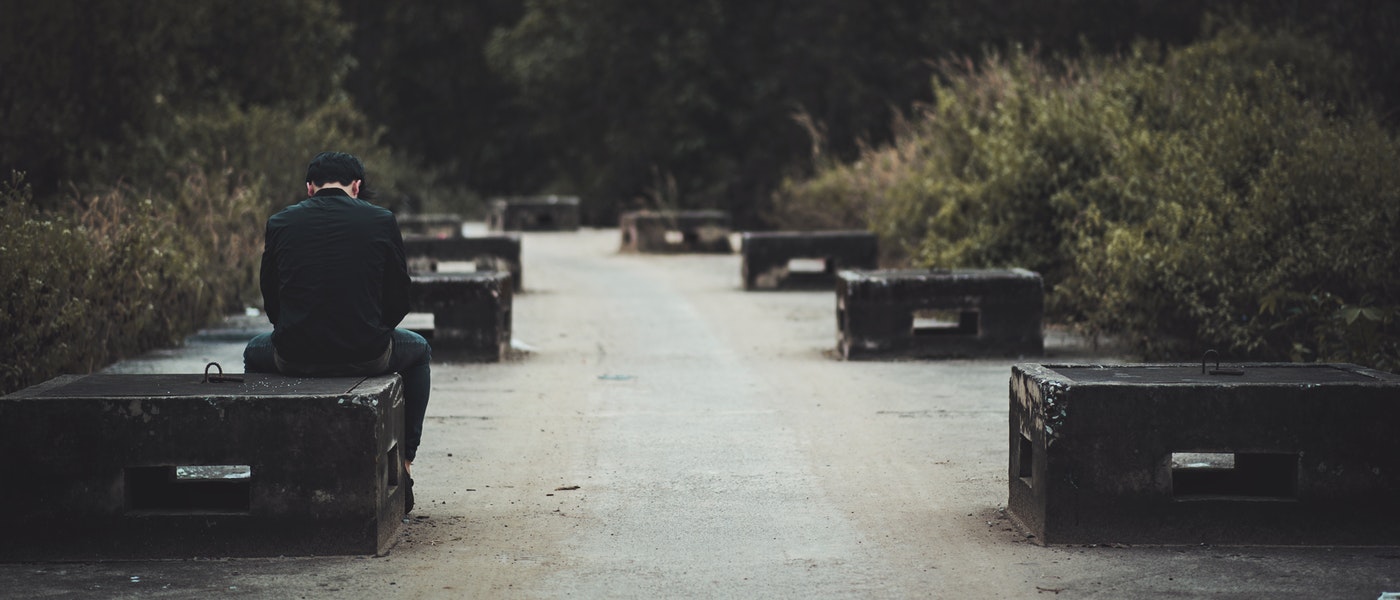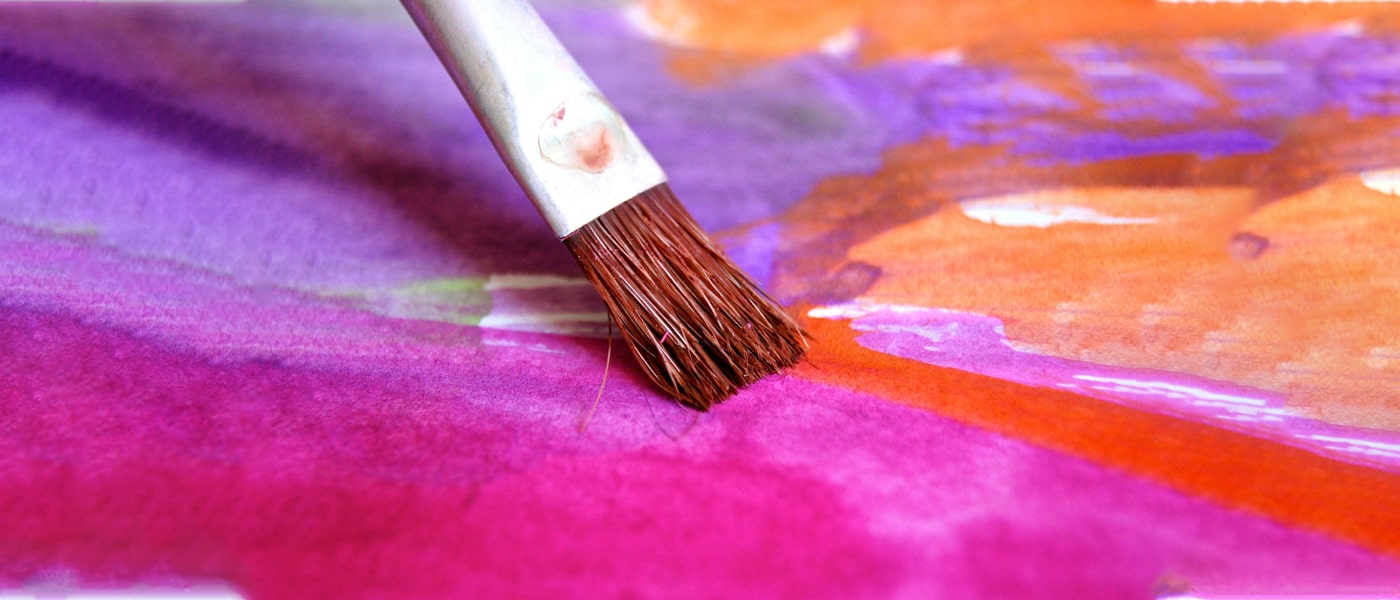

4 Islamic Responsibilities that Builds a Better Society
Islam, as the last divine monotheistic religion, is the most perfect of the religions: “Today I have perfected your religion for you… and I have approved Islam as your religion.” (5:3). By introducing Islam, Allah has completed His blessings upon human beings (5:3). In other words, Islam provides everything that humans need to reach their perfection and salvation in the afterlife [1]; what they require for a divine life in this world and the tools they need for their social life, too; including their rights and responsibilities. The Islamic responsibilities of each individual towards others were thoroughly discussed previously. Here, the focus will be on Islamic responsibilities that concern the rights and benefits of people in society.
1. Social Expediency Is the Priority
When reviewing the Islamic teachings, one can notice the importance of congregation, unity, and brotherhood in the society. That is why many duties such as those to parents, neighbors, relatives, sick people, the elderly, the young people, mentors, etc. as various members of society are defined in Islam. Doing good to orphans, those in need, the traveler and the beggar, and freeing slaves (2:177) is another Islamic principle that concerns the members of society.
Hence, it can be concluded that in most cases, Islam has preferred the benefits of the congregation over the individual, even if it imposes a limitation or a loss to the individual. This can be compared to some of the social rules that aim to bring order in society but are limiting to individuals (e.g., red light).
2. No to Social Ranking or Racial Discrimination
In Islam, there is no place for arrogance and racism, but brotherhood towards other Muslims and a general sense of humanity towards every human being have been encouraged [2]. According to the Quran, the diversity of life and the various languages and colors of human beings are all signs of Allah’s majesty (30:22). Also, as Islamic teachings suggest, no privileged class exists, and everyone is equal in society, the only criteria for superiority over others is having piety or moral excellence (49:13).
Prophet Muhammad (PBUH&HP) has also emphasized this in a narration where he (PBUH&HP) says that all human beings are from the same father (Adam (AS)) and no nation or race is superior to the other [3]. In another narration, he (PBUH&HP) says that whoever knows more than others is more respected [4], and he repudiates the discriminations based on tribe, origin, color, and wealth.
3. Giving Alms-Tax (Zakat) Is an Islamic Responsibility
By many of its rulings and duties considered for its followers, Islam aims to direct the attention of each individual to other’s needs. One way of achieving this goal is through the Alms-Tax (Zakat). Zakat is an exact amount of money that must be paid according to the rules of Sharia to be used in favor of the people in need or for certain beneficial deeds in society. Zakat can be given to poor people or can be spent on public welfare or creating jobs.
It should be noted that one can directly pay Zakat to the needy people only under the permission of his/her religious expert (Marja’). The aim is to manage and organize the resources by an expert aware of the requirements of the society; Marja’. This is one of the solutions to prevent a particular group of community to manipulate the economy. It empowers those who have been neglected in society to become productive and useful.
4. Voluntary Charity (Sadaqah)
Sadaqah is giving away something (money, clothes, food, teaching, etc.) voluntarily to someone in need without expecting anything in return and with the intention of pleasing Allah: “spend from what we have provided you” (63:10). Giving charity in the form of Sadaqah is highly recommended in Islamic teachings. However, the manner of giving charity is of high importance in Islam. Sadagah should be offered discreetly to needy people rather than in public with the intention of showing off and pretending to be generous. This means that Islam encourages the preservation of human dignity.
Here, we reviewed a general Islamic viewpoint that guarantees the rights of every member of the society and the importance it gives to social expediency. These Islamic recommendations will ultimately promote human rights and dignity.
References:
- M H Tabataba'i, “Tafsir al-Mizan”, Surah Al-Maidah.
- islam and humanity
- M. Karajaki, “Ma’dan al-Jawahir wa-Riyadat al-Khawatir”, p. 21.
- Shaykh Saduq, “al-Amali”, p. 27.
Share This Article

Why is Committing Suicide Forbidden in Islam?
If you have ever experienced such hard conditions in life that you see your life or other peoples’ lives completely purposeless or absolutely miserable and you may have thought of killing yourself or ending miserable peoples’ lives, then I suggest you read this text to the end and realize why suicide in Islam is strictly forbidden.
Although I know that if you are close to one of those highly hopeless phases of your life, you may even wish to kill me over the net!!! But, you probably have no important task right now, as you probably don’t care. So read on and do not lose your opportunity of accompanying me in this meaningless life!
Why Thinking of Suicide?
Have you ever come across a person who is seriously ill, and his existence seems to be real trouble for himself and his family members? He stays all day in bed, with no capability of moving, or talking or transferring emotions or anything else, and he lives a plant life. Have you ever thought that killing such a useless and incapable person would bring more mental, physical and economic benefits to the society?
These thoughts and many other thoughts that may be on your mind, and may have remained unanswered for ages, can make life meaningless. But let us see how our creator answers these types of thoughts;
1. Why Am I not in the Situation that I Want to Be?
All human beings try to reach high positions in life, whether economic, social, political, educational, physical or spiritual. Some people reach those high positions, and many of them remain normal people in society. Among those who think that they have not achieved such reasonable positions in life, there is a group who has never set a real goal to achieve and have only dreamt of those situations.
But there are also a group of people who have set realistic goals and tried hard to achieve them, but they have never been successful. A percentage of the latter group may become disappointed and may think of this life as a pointless life, and some of them may think of suicide.
2. Why Can I not Be with the Person I Really Love?
The tragedy that repeats in the history of humankind, and has been the reason for many suicide attempts is a broken heart, and not gaining the love of your life. People, who are not in love, may think that the suicidal decisions of disappointed lovers are very shallow and childish. But the person, who is trapped in the hands of powerful love, sees nothing more important than reaching the love of his/ her life.
The worldly loves may not be limited to the opposite sex only. Some people desire wealth, different jobs, cars, buildings, and towers, or even knowledge. This sort of love can also remain unattained and lead people toward disappointment.
3. What Is the Point of Living in Such a Depressing Life?
Some people face problems in every aspect of their life. It can be individual problems such as debt, disease, family problems, loneliness, etc. Or it could be much bigger than that; social problems, war, the unjust power of imperialism and capitalism, environmental pollutions or the spread of oppression in the world.
These great issues are enough to make one totally disillusioned with living in this cruel world and to lead him toward ending his/ her life.
What Is God’s Answer to Pseudo Injustice and Corruption?
In all the issues mentioned above, that may take a person to the point of hopelessness, God gives us guidelines and answers. He says in the Holy Quran that most of the hardship that human beings go through is to test their level of faith and to distinguish those who are truthful and those who verbally talk about faith with no real belief in it (29: 2-3).
The life of this world is only a place for us to prove our capabilities and talents for greater eternal life, and in this path, only the patient will win;
“We will surely test you with a measure of fear and hunger and a loss of wealth, lives, and fruits; and give good news to the patient.” (2: 155)
Do You Kill Yourself in the Middle of a Test?
Imagine that you have entered a challenge or a test. In the middle of the tackle, you find it really hard that you feel like you cannot take it anymore. Will you stop the challenge and decide to kill yourself, or will you think about your goals and keep going with the rest of your energy?
Usually, people who have set goals in life, will keep moving and find ways of overcoming problems. Therefore, the main problem of those who may think of suicide is that they don’t have a clear goal, nor they have a clear vision of the meaning of challenges in life.
From an Islamic viewpoint, the life of this world is full of different tests, and by going through them and passing the tests, people elevate their spiritual level and build their eternal life more comfortable. Therefore, the harder the tests are, the stronger the person will become, and he will have an easier life in the hereafter.
How Does God Want Us to Face Our Problems? and Why Suicide in Islam Is Forbidden?
First of all, He wants us to choose the right path in life; “rectitude has become distinct from error.” (2: 256)
After choosing the path of righteousness, He wants us to follow the guidelines that He sent us through His messengers; “should any guidance come to you from Me, those who follow My guidance will not go astray, nor will they be miserable.” (20: 123)
Then, He promises that whoever sets his goals in the direction of helping the religion of God and gaining God’s satisfaction, He will show him/her the right way: “As for those who strive in Us, We shall surely guide them in Our ways, and Allah is indeed with the virtuous.”(29:69)
Therefore, whoever forms his lifestyle based on teachings of God, will never feel disappointed, since Allah says: “indeed no one despairs of Allah’s mercy except the faithless lot”. (12: 87)
Conclusion
When you face problems you should:
1. Revise your goals and lifestyle. If it is against the path that Allah has sent us, disappointment will overcome you at some points.
2. Remember God, knowing that it will give you strength; “—those who have faith and whose hearts find rest in the remembrance of Allah.’ Behold! The hearts find rest in Allah’s remembrance!” (13: 28)
3. Form a strong Islamic family to keep you in peace; “And of His signs is that He created for you mates from your own selves that you may take comfort in them, and He ordained affection and mercy between you.” (30:21)
4. Never hang around aimlessly and idly; “so when you are done appoint (to a new task).” (94: 7)
5. Keep in mind that the real life is to come after death. So live every day of your life knowing that it may be your last day. Many of us are the last minute people!!
And there are many other solutions that can help us get rid of satanic thoughts, if we just read the Quran while we are depressed and feeling suicidal.
Read More

What Types of Drawings in Islam Are Permissible?
The issue of art and drawings in Islam is among those topics that have not been directly mentioned and ruled on in the Quran. Therefore, one might wonder if drawings in Islam is allowed (Halal) or not and if yes, then are all types of drawings permitted (Halal)?
There are a few traditions narrated about drawings in Islam that are usually used to answer this question. However, since the answer can be derived from the Quran, this text tries to answer the question based on the Quranic verses.
Now, you might be asking how it is possible to understand the ruling on drawing while there is no direct mention of it in the Quran. The answer is clear; the Quran provides us with a set of fixed frameworks that work as a criterion for us. And whenever we come to a question that we think was not an issue at the time of the Prophet (PBUH&HP), we can study it, based on the Islamic criteria and find the answer.
Does Allah Like Art?
Drawings in Islam and all other types of art are considered as tools to make things more beautiful and to create a feeling of admiration in their audience. Allah (SWT) has created this universe most superbly and has ordered all His creatures to admire and praise Him for this beautification. After creating the human, He looked at his creation and admired His own creation: “He formed you and perfected your forms, and provided you with all the good things. That is Allah, your Lord! Blessed is Allah, Lord of all the worlds!” (40:64)
Apart from the whole magnificent scenery of the universe, created by Allah (SWT), there are also some verses of the Quran that indicate the importance of beauty in the eyes of our Creator. And that is why the Prophet (PBUH&HP)’s saying, “Indeed Allah is beautiful and likes beauty” has become so famous [1]. The importance of beauty in the eyes of Allah is visible in different verses of the Quran:
“O Children of Adam! Put on your adornment on every occasion of prayer … Say, ‘Who has forbidden the adornment of Allah which He has brought forth for His servants, and the good things of [His] provision?’” (7:31-32)
What Can We Find in the Quran about Art?
Creativity is a blessing with which Allah (SWT) has provided human beings (not to mention all the artistic creations of other creatures). And therefore, human beings have always created new things using their creativity, the effect of which is evident in the history and the Quran, e.g., in building houses, castles, making clothes, or designing jewelry, etc.
However, the Quran does not admire all types of art. For example, making sculptures or figures to worship and as idols are considered to be negative. For instance, Prophet Abraham (PBUH), facing his people who were worshiping lifeless and dumb idols, addresses his father and says: “What are these images to which you keep on clinging?” (21: 52)
While in another Surah of the Quran, making statues and sculptures and other pieces of art so far as they are useful for human beings are referred to as positive and admirable. An example is when The Jinn built those pieces of art under the observation of Prophet Solomon (PBUH): “They built for him as many temples as he wished, and figures, basins like cisterns, and caldrons fixed [in the ground] …” (34:13).
Besides, the main ruling on doing artworks can be derived from a Surah in the Quran called Surah Al-Shu’araa’ which means Poets.
In this Surah Allah (SWT) clearly describes the essence of forbidden (Haram) and allowed (Halal) art with a direct mention of poetry which was popular in Prophet (PBUH&HP)’s time:
“As for the poets, [only] the perverse follow them. Have you not regarded that they rove in every valley and that they say what they do not do? Barring those who have faith, do righteous deeds, and remember Allah much often, and vindicate themselves after they have been wronged. And the wrongdoers will soon know at what goal they will end up.” (26: 224-7)
In these verses, Allah (SWT) states that only perverse people would follow and admire the poets. And in describing the poets, it is mentioned that “they rove in every valley,” meaning that they make up things from their imagination. At the time of the Prophet (PBUH&HP), ‘most poetries were about the beauty of women, adultery, and pervert behaviors.’ However, Allah (SWT) does not forbid poetry completely; rather, He ‘makes the exception of faithful poets’ in the next verse. ‘Those who use their art as a tool to defend justice and to reveal oppression and injustice.’ [2]
How Do I Know My Drawings in Islam Are Forbidden (Haram) or Allowed (Halal)?
From the above verses of the Quran, we can conclude that any form of art or any other tool is allowed (Halal) provided that they are used in the way of Allah, and if used in the way of Satan, they are considered to be forbidden (Haram). Therefore, it is of utmost importance to be familiar with the Islamic jurisprudence to distinguish the right from wrong from an Islamic viewpoint.
Another point that needs to be considered about different forms of art and drawing is that they should not go against the Islamic jurisprudence. Including erotic pictures or scenes in drawings or illustrations is one example of what makes this form of art forbidden. Therefore, as long as the drawing or making sculptures do not have any adverse harm for human soul and improvement, the ruling is as follows: “There is no harm at all in the sculpture, photography, and drawings of living beings whether or not they have a soul. Also, it is permissible to sell, buy, or keep pictures and statues. There is no objection to showing them in an exhibition as well” [3].
References:
- Al-Kafi. Vol. 6, p. 438
- Tafseer-e Noor, Qara’ati, M. Vol. 6, p. 381
- Painting and sculpture
Read More

